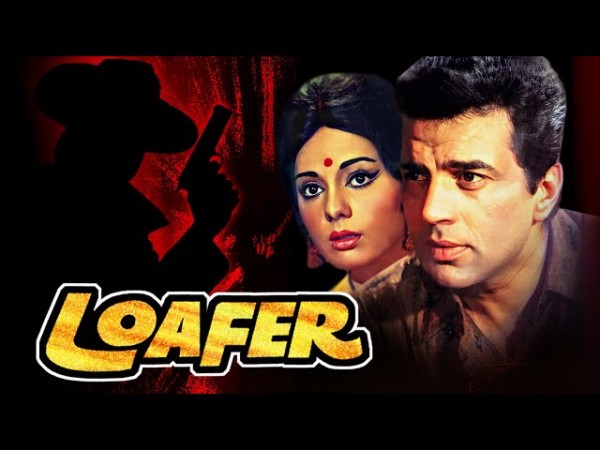
Success frequently resembles an elusive butterfly in the world of Indian cinema, where aspirations are woven with the threads of toil, devotion, and unwavering faith in one's craft. "Loafer" was one movie that defied all odds and became a huge hit in 1973. The truthful admission by Mumtaz Askari, the film's lead actress, that she initially had doubts about its likelihood of success is what makes this cinematic journey exceptional. Despite her scepticism, "Loafer" went on to become one of the biggest hits of 1973, solidifying its place in Bollywood history. In this article, we explore the intriguing tale of "Loafer" and the unexpected success it attained.
Indian cinema underwent significant change in the early 1970s. With new themes, genres, and styles emerging, Bollywood was undergoing a dynamic shift. The ever-evolving Hindi film industry saw the emergence of iconic actors and actresses who made their mark and stirred things up. "Loafer" made its debut in this period of change.
Let's take a moment to recognise the leading lady, Mumtaz Askari, who was a powerful force in the film industry before moving on to the movie itself. Mumtaz, who was born on July 31, 1947, in Bombay (currently Mumbai), had a modest beginning in the film business. She started out as a child artist before moving on to supporting parts. Her undeniable talent and radiant charm quickly catapulted her to leading roles.
Mumtaz was renowned for her acting versatility. She could move between drama, comedy, and romance with ease. She became a beloved figure among audiences thanks to her vivacious on-screen persona and elegant dance moves. Nevertheless, despite her extraordinary talent, even seasoned actors occasionally find it difficult to predict the outcome of their films.
A. Bhimsingh was the director and Yash Johar was the producer of "Loafer." Dharmendra, Mumtaz, K.N. Singh, and Om Prakash were among the talented ensemble cast that the movie assembled. With a dash of mystery and suspense, it was a love story at the centre of a romantic drama. The story focused on Dharmendra's (who played Raju) character as he becomes involved in a murder investigation and Mumtaz, who played Anju, his love interest who supported him through difficult times.
Both ambition and scepticism were present throughout the film's production. Nobody, especially Mumtaz Askari, could have predicted the result even though it contained all the ingredients of a classic Bollywood comedy.
Actors and actresses are said to have a special perspective on the projects they are involved with. They develop an instinct, honed by years of experience, that aids them in determining a film's likelihood of success. Mumtaz Askari, who played the lead role in "Loafer," acknowledged having doubts about the movie's chances.
Mumtaz couldn't help but be dubious when she saw the "Loafer" rushes. She openly expressed her concerns about the outcome of the movie as her doubts began to creep in. She had no idea that the initial uncertainty she had would be dramatically disproven.
When "Loafer" was released in 1973, it completely changed the Indian film industry. Moviegoers flocked to theatres, and the movie quickly gained popularity. Its extraordinary success was aided by its captivating plot, stirring performances, and catchy songs. One of the movie's high points was the chemistry between Dharmendra and Mumtaz, which captivated audiences with the unfolding drama of love, mystery, and intrigue.
The success of "Loafer" was greatly influenced by its music. The songs for the movie, which were written by Anand Bakshi and composed by the legendary Laxmikant-Pyarelal, went on to become chart-toppers. Classics like "Aaj Mausam Bada Beimaan Hai" and "Koi Sehri Babu" are still cherished by fans and are frequently played on the radio and at gatherings. These songs improved the storyline of the movie and also developed into classic melodies.
Even the most experienced business insiders were surprised by "Loafer's" unexpected success. It proved that occasionally, despite initial scepticism and apprehension, a movie can have a profound emotional impact on viewers, capturing their attention and leaving a lasting impression.
After "Loafer" became a huge hit, Mumtaz's career grew even more. She continued to appear in numerous successful films, solidifying her place among the most renowned actresses of her era. She received numerous honours and awards for her contributions to the Indian film industry, and she is still regarded as an important figure in Bollywood history.
The 1973 film "Loafer" is proof of how difficult it is to predict success in the Indian film industry. Mumtaz Askari's initial scepticism regarding the movie's chances only added to the shock when it turned out to be one of the year's biggest hits. The movie's enduring appeal is evidence of both the extraordinary talent of its leading lady and the timeless appeal of Bollywood classics.
Stories like "Loafer" remind us that the magic of cinema lies in its capacity to enthral and surprise audiences, transcending the expectations of even its own creators, in a world where the film industry is constantly evolving. Mumtaz Askari's journey from doubt to success is a story about the erratic and enthralling world of Bollywood, where dreams are realised in spite of all odds.
'Flash Forward' and Its Transformation into 'Action Replayy'